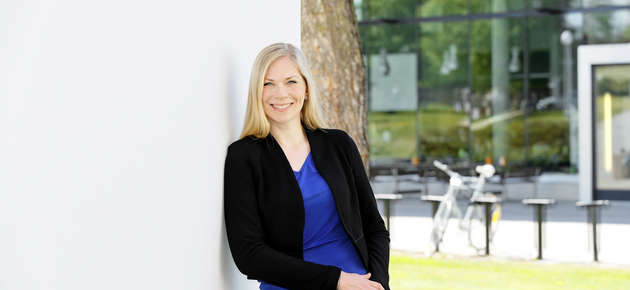Dissertation: Blending two low quality fuels enhances fuel blend properties

“For environmental reasons, the sulphur content of fuels has been reduced for several years. The chemical properties of sulphur seem to enhance the stability of biodiesels. The sulphur has the same role in plants and living beings but the effect it has on biofuels has not been studied before as detailed as in this thesis”, says Katriina Sirviö who defends her doctoral thesis at the University of Vaasa.

Sirviö has also studied new fuel blends for marine, power plant and off-road engines. Marine diesel fuel produced from recycled lubricating oils blended with rapeseed biodiesel is one sustainable option for marine applications. A 100% renewable blend consisting of renewable naphtha and rapeseed biodiesel is another feasible alternative fuel.
Fuel flexibility guides the engine research and development. Markets are opening to alternative fuels, which are those fuels that have not been produced in crude oil refineries. From a technical point of view, there are several feasible alternative and renewable fuel options. In Katriina Sirviö’s dissertation the fuel properties and their feasibility in engines was researched. The results are important to the engine research. Simultaneously they promote the achievement of the targets set in the European Union in terms of the energy politics.
Only analyzed fuels for commercial use
The commercial fuel has to fulfill certain requirements. The fuel has to be compatible with the engine and fuel systems, and the analyzed results need to be available. Fuel must also be safe to use. The favorable properties are though not enough, but the volumes of the fuels also need to be sufficient for their usage. Blending fossil and renewable fuels is one way to facilitate these challenges. So far, the availability and price have prevented the wider use of the blends. The blends can be considered to be more suitable options in local use when the consumption is not megatons.
“Suitable applications are off-road machinery in agriculture. In agricultural machines, there is also a high need for new alternatives. If it is possible to utilize locally produced fuels, it is one step forward onto the decentralized energy production”, Sirviö says.
Peaking power is needed when it’s not windy
The energy production is in transition, due to both the energy policy and the depletion of fossil fuel reserves. The European Union has set the target to increase the amount of renewable energy into 27 percentages of the whole energy consumption by year 2030. The energy efficiency is targeted to also enhance by 27 percentages. As the amount of renewable energy, such as wind and solar power is increased, the need for peaking power is also increased. Storing the energy is difficult, even though the energy storing solutions are researched and developed further.
“While waiting the new energy storage solutions, the peaking power is needed. For the stabilization of the electricity grids, the hydro power plants are the most feasible option but they are not available everywhere. The second best choice is power plants run by gas or diesel engines. In them, the renewable fuels, biogas or renewable liquid fuels, can also be utilized”, Sirviö reminds.
Information
Katriina Sirviö, tel. +358 29 449 8315, katriina.sirvio(at)uwasa.fi
Sirviö, Katriina (2018): Issues of various alternative fuel blends for off-road, marine and power plant diesel engines. Acta Wasaensia 400. Doctoral dissertation. University of Vaasa.
The publication as pdf and orders: http://urn.fi/URN:ISBN:978-952-476-805-4
Doctoral candidate
M. Sc. (Chem) Leea Katriina Sirviö was born in 1983 in Sotkamo. She graduated from the high school of Sotkamo in 2002. She finished her Master of Science degree in Chemistry at the University of Oulu in 2010. Sirviö has worked as a chemist at the University of Vaasa since 2010.
Public defence
The public examination of M.Sc. Leea Katriina Sirviö ´s dissertation in the field of Energy Technology ”Issues of various alternative fuel blends for off-road, marine and power plant diesel engines” will be held on Friday, 15th June 2018 at 12 o’clock in Auditorium Kurtén (Tervahovi), University of Vaasa.
Professor (emer.) Jukka Ahokas (University of Helsinki) will act as opponent and professor Seppo Niemi (University of Vaasa) as a custos.